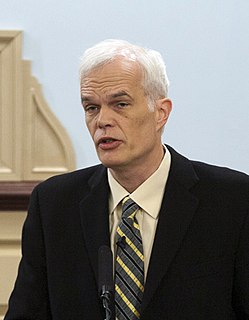A Quote by Dave Barry
If you tell most people what libertarians think, they immediately assume that you cannot mean it all the way, that you're really just taking a position for argument's sake.
Related Quotes
There are some really great books that have been written about slavery, but I don't think that the discourse about it in society has been very accurate or healthy. I don't think we've come up with ways to tell it that don't insult people or hit them in the wrong way. Part of the problem is that most people don't really understand what slavery was anyway. Most white people didn't own slaves. Slavery was a way of life, just like driving cars is a way of life now. It doesn't mean that it was right.
I believe in clear-cut positions. I think that the most arrogant position is this apparent, multidisciplinary modesty of "what I am saying now is not unconditional, it is just a hypothesis," and so on. It really is a most arrogant position. I think that the only way to be honest and expose yourself to criticism is to state clearly and dogmatically where you are. You must take the risk and have a position.
It would be so easy to lose the plot now. It's not about achieving something for its own sake, and taking pictures for their own sake. But to make conscious decisions and choices, and it includes this constant questioning - Why am I taking pictures? Because really, the world is... it has pictures enough. I mean, there are enough pictures out there.
To undertake the direction of the economic life of people with widely divergent ideals and values is to assume responsibilities which commit one to the use of force; it is to assume a position where the best intentions cannot prevent one from being forced to act in a way which to some of those affected must appear highly immoral. This is true even if we assume the dominant power to be as idealistic and unselfish as we can possibly conceive. But how small is the likelihood that it will be unselfish, and how great are the temptations!
I'm not an intimate of Donald Trump, but I have great instincts about people, and I have fairly good skill at sizing people up, and it's not phony. You can tell when somebody's talking to you and not really hearing you. I've been around powerful people ask me what I think about things, and I can tell they're not really listening. They just asked, to ask, try to score points that way. Trump listens. But you don't get the impression that he's listening from a position of indecisiveness, indecision or confusion. I've never met anybody with the energy this guy's got, either.
If you go to the right conservative places you'll find there's a huge argument about this among conservatives, particularly the conservative elites and the conservative intellectuals. There's always an argument among our people over who's the smartest person in the room and they're always trying to outsmart each other with the fanciest smartest most obscure argument. The fact is these arguments are taking place within the conservative movement I think quite a lot.
































